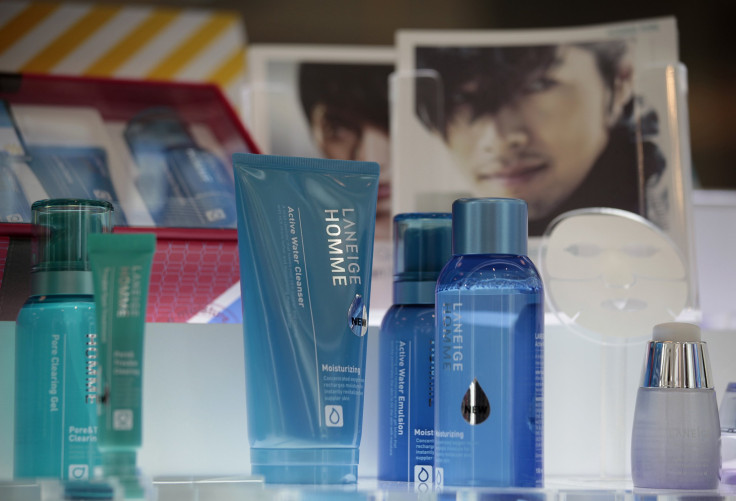Chinese Males Adopting 'Metrosexual' Lifestyle Boost China's Cosmetics Industry

In China, women have been known to go to great lengths to achieve the society’s standards of beauty, whether it means shelling out money for beauty products or going under the knife to reshape the nose or eyelids. For a long time, men were never a large part of the cosmetics market share, but that seems to be changing.
As China’s middle class grows, moving away from labor-oriented jobs and gaining larger disposable incomes, a shift in personal appearance has occurred. Along the same lines of being decked out in designer clothing, and driving expensive cars to make an impression, men in particular have been putting more effort into looking good, boosting China’s $22 billion cosmetics industry.
Data released by consumer research firm Kantar Worldpanel shows that 73 percent of Chinese men in China’s biggest cities now think looking good is an essential part of being successful at work for both men and women. And the numbers show a growing interest in personal grooming. Kantar found that personal grooming products marketed directly to men, including facial cleansers, shampoos and deodorants, have risen by 7 percent in China, compared to the industrywide 5 percent growth. Specifically, the metropolitan man in China uses an average of 2.5 different facial products daily, the most out of all the East Asian nations polled. And there's definitely room for growth in deodorants: Only 13 percent of Chinese men surveyed use it on a regular basis.
These numbers are likely just the start of a big boom for makers of grooming products. Procter & Gamble’s managing director for male-grooming brands in greater China, Alexander Dony, says the company’s men’s products have “exploded” in the past five years.
According to Bloomberg Businessweek, sales of male-oriented skincare products, like L’Oreal’s Men Expert line, make up just 5 percent of China’s $13 billion skincare market. Looking forward, analysts are expecting to see even more growth as marketing begins to focus more heavily on the "metrosexual" male customer, something that was not a priority in the past.
But it isn’t just cosmetics companies that are raking in the money as men become more grooming-conscious. Fitness companies have been seeing more market interest from both men and women looking to buy into gym memberships. Bloomberg Businessweek cites a finding from IBISWorld, an Australian-based intelligence firm, that the number of commercial gyms in China quadrupled between 2004 and 2012, up to roughly 5,750 facilities, and they are generating $3.69 billion in annual revenue.
© Copyright IBTimes 2025. All rights reserved.






















